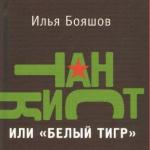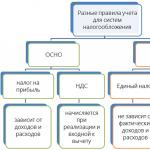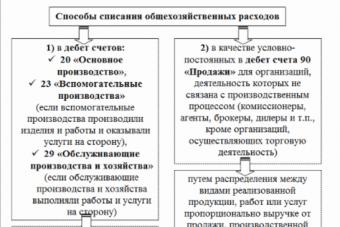(Perception, interpretation, evaluation.)
The poem “The night was shining. The garden was full of the moon. They were lying ... "- one of the lyrical masterpieces of A. A. Fet. Created on August 2, 1877, it was inspired by the singing of T.A.Kuzminskaya (sister of Sofia Andreyevna Tolstoy), who described this episode in her memoirs. The work opens a whole cycle of poems in the collection "Evening Lights", which Fet called "Melodies". Of course, this is no coincidence. The poem is really written in a song-and-song key, unusually musical. The poet believed that beauty - the main idea of the lyrics - is expressed not in lines, not in refined words, but above all “sounds subtle”. This means that one of the most important characteristics of poetry should be melody.
The musicality of this work is achieved with the help of repetitions at different levels of the poetic text. So, in the lyrical syntax there are anaphores (And ... And ..., What ... What ...) parallel constructions within the stanza ("That you are one - all life, that you are one - love; And life has no end, and there is no other goal" ... ). Fet compares words similar in sound composition - "sonorous sighs" - giving the poem additional semantic and emotional "overtones". It uses phonetic techniques of assonance (repetition of the sounds [a], [o]), alliteration (repetition of the sound [p] in the line "The grand piano was all open and the strings in it trembled").
The composition of the poem also contributes to its melody. In this lyrical monologue, the author uses the ring technique. In the line “To love you, hug and cry over you”, which frames the work, Fet expresses the main feelings of the hero: delight and admiration for the power of vocal art.
Of course, the musicality of the poem is dictated by its theme. After all, this work is not only about love and nature, it is primarily about wonderful singing, about a voice that gives rise to many vivid experiences:
The night was shining. The garden was full of the moon. Lay
Beams at our feet in a living room without lights.
The grand piano was open and the strings were trembling
As well as our hearts behind your song.
You sang until dawn, exhausted in tears,
That you are the only one - love, that there is no other love,
And so I wanted to live so that, without dropping a sound,
Love you, hug and cry over you.
Fet does not depict a specific landscape or interior, but everything merges in him in perfect harmony. The poet creates an integral dynamic picture in which impressions are immediately presented, both visual and auditory, and tactile and sensual. Generalization and combination of images of nature, love, music help the poet to express the fullness of the joy of perception of being.
Autobiographical poem. His lyrical hero is Fet himself.
This work tells how the poet experiences two meetings with his beloved, between which there is a long separation. But Fet does not paint with a single stroke a portrait of his beloved woman, does not trace all the changes in their relationship and his condition. He captures only that quivering feeling that captures him under the impression of her singing:
And many years have passed, weary and boring,
And blows, as then, in these sonorous sighs,
That you are one - all life, that you are one - love.
The feeling itself is also difficult to describe in words. The lyrical hero conveys the originality, depth and complexity of his experiences with the help of “global” metaphors in the last line.
This poem once again convinces us that only art is capable of truly ennobling a person, purifying the soul, liberating and enriching it. Enjoying a wonderful work, be it music, painting, poetry, we forget about all our problems and failures, we are distracted from the everyday hustle and bustle. The entire human soul opens up towards beauty, dissolves in it and thus gains the strength to live on: to believe, hope, love. Fet writes about this in the last stanza. The singer's magic voice frees the lyrical hero from "the grievances of fate and the heart of burning torment", presenting new horizons:
And life has no end, and there is no other goal,
Once you believe in the sounds of crying
Love you, hug and cry over you!
Speaking about the lyrical character of the poem, the author involuntarily touched upon the theme of the creator, his mission. The singer's voice, which awakened a whole gamut of feelings in the hero, sounds so delightful, because the heroine gives herself passionately to her occupation and is herself fascinated by the magic of music. At the moment of singing the song, it must seem to her that there is nothing more important in the world than these beautiful sounds than the feelings embedded in the work. To forget about everything except creativity is the lot of a true creator: poet, artist, musician. This is also said in the work.
The poem “The night was shining. The garden was full of the moon. They were lying ... ”strikes with a variety of themes, depth and brightness of images, extraordinary melody, as well as its idea, which, in my opinion, consists in the author's amazing desire to convey the beauty of art and the world in an all-encompassing manner.
The night was shining. The garden was full of the moon. Lay
Beams at our feet in a living room without lights
The grand piano was open and the strings were trembling
As well as our hearts for your song.You sang until dawn, exhausted in tears,
That you are the only one - love, that there is no other love,
And so I wanted to live so that, without dropping sounds,
Love you, hug and cry over you.And many years have passed, weary and boring,
And in the stillness of the night I hear your voice again,
And blows, as then, in these sonorous sighs,
That you are one - all life, that you are one - love.That there are no grievances of fate and a heart of burning torment,
And life has no end, and there is no other goal,
Once you believe in the sounds of crying
Love you, hug and cry over you!
Analysis of Fet's poem “The night shone. The garden was full of the moon ... "
The poet Afanasy Fet is an unsurpassed lyric poet whose works surprisingly accurately convey the feelings experienced by the author and create an unusually romantic atmosphere. True, the poet's youthful poems are devoid of secret sadness, inspired by the tragic death of Maria Lazic. Fet was in love with this girl and an impoverished noble family, but refused to marry her due to financial difficulties. Subsequently, having regained his title and family estate, as well as having successfully married a rich merchant's daughter Maria Botkina, the poet reproached himself for having lost love after gaining wealth.
The poem “The night was shining. The garden was full of the moon ... ”, written in 1877, when the poet was already in his sixties, is a work-memory dedicated to one of the brightest and happiest periods of Fet's life. He was young and in love, enjoying life in the company of a girl who shared his feelings. And the memory of these romantic dates formed the basis of a poem filled with joy and peace, which, nevertheless, are seasoned with a keen sense of bitterness and the realization that nothing can be returned.
The first lines of the poem take readers to an old mansion, immersed in darkness. Only moonlight lies at the feet of two people who are in the living room.... The sounds of a piano and a gentle female voice that sings about love can be heard from it. “You sang until dawn, exhausted in tears,” the poet notes. Apparently, this was the last night he spent with Maria Lazic, saying goodbye to his beloved, but not suspecting that in less than a month she would leave his life forever, remaining only in his memory. However, at the moment of farewell, the poet "so wanted to live so that, without dropping a sound, he could love you, hug and cry over you."
Fet did not yet realize that by abandoning his beloved, he would forever change his life, which from now on would be deprived of ordinary human happiness. Therefore, the poet admits that "many years have passed, painful and boring." But the memories of lost love are becoming more acute and painful every year, the author is no longer happy with the financial well-being, for which he was striving so much, and for the sake of which he betrayed the one that, as it turned out, was dearer to him than all earthly blessings. And now, after a quarter of a century, the poet fancies that he again hears the singing of his beloved, and the enchanting sounds of her voice seem to return the author to the past, where "there are no offenses of fate and the heart of burning torment."
Afanasy Fet, setting off on a journey through the waves of his memory, does not want to return to the reality that frightens him, cold and gloomy. In his family, he feels infinitely lonely and doomed to a bleak old age. Therefore, he really wants to have no other goal in life, "as soon as believe in sobbing sounds, love you, hug and cry over you!" But these dreams are not destined to come true, since Maria Lazic has been buried in a rural cemetery for almost 30 years. The poet never dared to visit her grave even once in his entire life, believing that he was indirectly involved in the death of his beloved. And it is precisely this sense of guilt that explains the repeated repetition of the word "cry" in the poem. This is the only thing that remains for the poet, who realizes what exactly he has lost in his life, and understands that even all the treasures of the world are not able to return him to the past and allow him to correct the mistake that played a fatal role in the poet's life. His destiny is to indulge in memories that give joy and, at the same time, cause unbearable mental pain, which is filled with the poem “The night shone. The garden was full of the moon. "
The writing
The poetry of Afanasy Afanasyevich Fet (Shenshin) is one of the recognized peaks of Russian lyric poetry. Fet is one of the most widely read poets. In the poet's personality, two completely different people came together in an amazing way: a rude practitioner who had lived a hard life and an inspired, tireless singer of love and beauty. Fet's poetry is musical. Many of his poems were written in the tradition of romance. And the poem that will be discussed in this work is no exception. “The night was shining. The garden was full of the moon. They were lying ... "- a romance popular at the time of the poet, set to music. Thematically, Fet's lyrics are limited by the beauty of nature and female love, but the themes in his works do not play a significant role. Fet's poems are collections of incredibly expressive images.
The poem “The night was shining, the garden was full of the moon. They were lying ... ”it is written about Tatiana Bers (married Kuzminskaya), the sister of Sofia Andreevna Tolstoy. Fet heard Tatiana Bers singing one evening and told her: "When you sing, words fly on wings." Delighted with inspired singing, the poet created his poem, very lyrical, expressive and gentle:
The night was shining, the garden was full of the moon. The Rays lay at our feet in the living room without lights. The piano was all open, and the strings in it trembled, Like our hearts behind your song.
This poem is remarkable for its surprisingly gentle rhythm and inspirational, subtle and precise images. Fet's accuracy and attention to detail is his undoubted talent. For this poem, as well as for all of Fet's poetry, sound writing is characteristic. Let's pay attention to the first stanza. It is dominated by soft, iridescent and seemingly flowing "l": "the night was shining", "the garden was full of the moon", "the rays were lying ...", after which there is a transition to the rolls of "r": "the piano ... open." , "The strings ... were trembling." A transition from smoothness to an increase in emotional stress is felt. The amazing ability to write with sounds gives Fet's poems such a musical sound.
The poem is based on the images of the night, the moon and the piano. Darkness, light and music are the basis of this piece. The image of the singer and her voice come to the background. In this poem, one can feel the unity of man with the world around him.
Moonlit night, garden - unthinkable without the piano and the singer's voice. Just as in other conditions, that Tatiana Bers, whom the poet admired, would no longer exist. Fet's amazingly figurative poems fascinate with their play, their colors and precisely chosen words.
In Fet's poem, nature is adjacent to feelings: "To love you, hug and cry over you." The quiet picture of the garden at night gives way to a contrasting image - a storm in the poet's soul: "The piano was all revealed ...". The poem is built on opposition. The "agonizing and boring" life is contrasted with the "burning torment of the heart." The goal of life for a poet is in a single impulse of the soul. In this work, the singing of Tatiana Bers became the impetus for a spiritual storm. In this poem, as in all the lyrics, Fet creates his own world - the world of love, beauty and contrast - of a quiet, clear nature with mental anguish.
I would like to say that the poem “The night was shining. The garden was full of the moon, They were lying ... ”striking in its purity and soulfulness. His lines are permeated with admiration, admiration and passion of the poet for his world, the world of creativity, and everything that contributes to the merging of creativity with reality, the birth of new poems. It seems to me that this poem cannot leave anyone indifferent, it can penetrate the heart and touch the most secret strings in the soul.
One of the best works created by the great lyricist Athanasius Fet is "The night was shining, the garden was full of the moon." This poem was written already at the end of the poet's life and was dedicated to the happiest period in his life.
Fet is one of the sophisticated lyricists of the 19th century. "The Night Shone" is a poem that refers to a late stage in the creative path of this author. It should be said that, despite the large number of touching and sad works created by the great Russian romantic, he was a rather businesslike and grasping person in life. Poetic creativity for Fet was a lifesaver, allowing him to hide from the bustle and dullness of life. But whose image is present in the work "Shone the Night"? Fet, according to critics and biographers, dedicated the verse to Maria Lazic, who died early.
Maria Lazic
She was the daughter of a small landowner. He is an officer not devoid of romance. Perhaps fate brought them closer together at the wrong time. This acquaintance would have happened a little later, the girl's life would not have ended tragically. And in Russian culture there would be no great lyricist. For the rest of his life, the lieutenant remembered the last meeting with Maria, when they were in the spacious living room, she played the piano, and the night shone outside the window. Fet wrote this verse many years after the memorable evening.

The young officer fell in love with the girl at first sight, but was not going to marry. Material difficulties and the desire to return the title of nobility turned out to be stronger than love. Some critics believe that the poet later dedicated most of his works to Maria Lazic. The pinnacle of his lyrics is "The night was shining." Fet, whose analysis of creativity became the topic of a large number of literary articles, reproached himself all his life for the weakness that he showed in his youth. Repentance formed the basis of the poem.
"The rays are at our feet ..."
In the first quatrain, Fet talks about the last evening with Maria. "The night was shining ..." - in these lines he is transferred to the atmosphere of the mansion. Maria Lazic was a musically gifted girl. For her personally, Fet himself wrote music, repeatedly asked her to play something from the works of this composer.
At the first meeting, Maria told Fet that her heart was given to another. But in reality, she had long been in love with the poet and his poems. In one of the letters, Fet told his friend that he had met a girl who is perhaps the only one with whom he could live happily all his life.

"Love you and cry over you"
There were many quiet romantic evenings. The house of Maria's father was distinguished by its hospitality. Here you could often meet young officers. But Fet and Lazic behaved somehow separately, rather rarely participating in the general fun. He never spoke to her about his feelings. Fet expressed his love only in poetry. "The night shone" is a poem, in the second stanza of which the author mentally confesses his love to his interlocutor. In these lines, he conveys the desire not to stop that happy moment: "to live without dropping sounds."
Agonizing years
Mary was a dowry. Marrying her meant condemning yourself and your future family to eternal poverty. To bury your future, to vegetate in the wilderness and have a wife withered prematurely from poverty. In addition, their regiment had to go over to martial law and march to the Austrian border. Fet told Maria Lazic about this on the last evening. But the girl reacted with restraint to the officer's explanations. Maria stated that she did not intend to encroach on the poet's freedom, but only dreamed of listening to him, talking to him.
When the situation escalated to such an extent that there was a threat to tarnish the girl's reputation, Fet stopped all communication with her.
The life of the poet's beloved ended tragically. Her father did not allow smoking in the house, but she still did not deny herself this pleasure. Once, while reading a book, Maria lit a cigarette and took a nap. When she woke up, the flames engulfed a significant part of the dress. Frightened, the girl only aggravated the situation: she began to run around the mansion and ran out onto the balcony. The flames from the rush of air engulfed her entire body.
Maria Lazic died of severe burns and, according to witnesses, before her death she asked to keep Fet's letters. The poet never visited her grave. Until the end of his life, he considered himself guilty of her death.

"That you are alone - all your life, that you are love"
In the last lines, the author conveys regret for the past life. He managed to regain the title of nobility. He married profitably and lived a life in abundance. But he could not forget about Maria Lazic. After a lapse of more than a quarter of a century, he again imagined the enchanting sounds of the piano and the singing of his beloved. The work uses the repetition: "To love you, hug and cry in front of you." This phrase occurs twice in the poem. With this artistic technique, the author enhances the emotional effect.
Fet's poem "The Night Shone" is a masterpiece of Russian lyrics, which once again confirms that a poet cannot become a true master of words without knowing true love and experiencing a sense of loss.
vocals: Vera Penkova
guitar: Ovsey Foul
The night was shining. The garden was full of the moon.
We were sitting in the living room without lights.
That you are the only one - love, that there is no other love,
Years passed. Tedious and boring.
And here in the silence of the night your voice again,
That you are one - all life, that you are one - love,
***
This poem was written on August 2, 1877, when the poet was already in his sixties. It is devoted directly to music and singing, and therefore the author refers it to the cycle "Melodies". The poem "The night was shining ..." was created by the poet under the impression of one musical evening in a circle of friends and is dedicated to Tatyana Andreevna Bers, in marriage Kuzminskaya, to whom Fet was at one time fascinated, and is a work-memory dedicated to one of the brightest and happiest periods of Fet's life ... He was young and in love, enjoying life in the company of a girl who shared his feelings. And the memory of these romantic dates formed the basis of a poem filled with joy and peace, which, nevertheless, are seasoned with a keen sense of bitterness and the realization that nothing can be returned.
The girl sang at this evening, as she was a wonderful singer, she was professionally involved in music. Kuzminskaya, the sister of Leo Tolstoy's wife, became the prototype of Natasha Rostova in the novel War and Peace. The history of creation is described in detail in the memoirs of T.A. Kuzminskaya (Bers) "My life at home and in Yasnaya Polyana". Here is an abbreviated version of it: “On one Sunday in May, quite a few guests gathered, among whom were Fet and his wife. After dinner, the men went to smoke in the office. As I remember now, I sang a gypsy romance,“ Tell me why. ”Everyone returned to the living room. I thought not to sing anymore and leave, but it was impossible, since everyone insisted on continuing. Tea was served, and we went into the hall. This wonderful, large hall, with large open windows to the garden, lit by the full moon, was conducive to singing. Petrovna approached many of us and said: “You will see that this evening will not be in vain for Fet, he will write something that night.” The singing continued. It was two in the morning when we parted. The next morning, when we were all sitting at a round tea table, Fet came in, followed by Marya Petrovna with a beaming smile. Afanasy Afanasyevich came up and put a sheet of paper covered with writing near my cup: "This is for you in memory of yesterday's Eden evening."
The grand piano was all open, and the strings in it trembled ...
For Fet, love is the only content of human existence, the only faith. A burst of passion is felt in the poem “The night shone. The garden was full of the moon. They were lying ... ". At the beginning of the poem, the quiet picture of the garden at night contrasts with the storm in the poet's soul: The night was shining. The garden was full of the moon. The Rays lay at our feet in the living room without lights. The piano was all open, and the strings in it trembled, Like our hearts for your song. Nature and love are interconnected in Fet's poems. These concepts are related, and they express the essence of being. When these concepts merge into a single whole, primordial beauty is born.
A. A. Fet is a singer of the night, illuminated from within, harmonious, trembling with myriads of lights.
A. Fet's poem served as an excellent material for the romances of many Russian composers: Tchaikovsky, Rachmaninov ... According to Saltykov Shchedrin, Fet's romances "are sung by almost all of Russia." The poetic world of the poem is romantic and distinctive. This work has an extraordinary power of penetration into the element of the feeling of love.
A. A. Fet's love poetry makes it possible to understand more deeply his general philosophical as well as aesthetic views, to look into the world of his soul and experiences. I would like to turn again and again to his melodious poems, to be filled with them, to let this simple beauty into my soul, to become better, richer and cleaner.
The night was shining. The garden was full of the moon. Lay
Beams at our feet in a living room without lights.
The grand piano was open and the strings were trembling
As well as our hearts behind your song.
You sang until dawn, exhausted in tears,
That you are the only one - love, that there is no other love,
And so I wanted to live so that, without dropping a sound,
Love you, hug and cry over you.
And many years have passed, weary and boring,
And in the stillness of the night I hear your voice again,
And blows, as then, in these sonorous sighs,
That you are one - all life, that you are one - love,
That there are no grievances of fate and a heart of burning torment,
And life has no end, and there is no other goal,
Once you believe in the sounds of crying
Love you, hug and cry over you!





